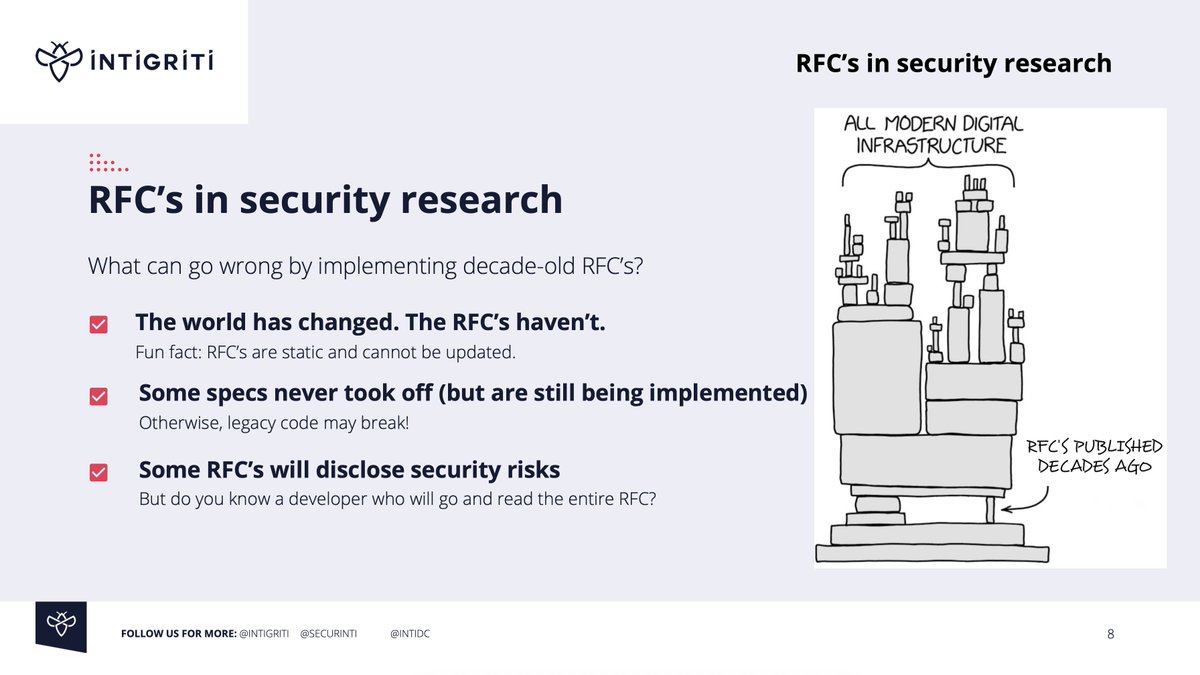
It's that time again, it's #BugBytes! Let's take a look at what's been happening this week in #BugBounty and Pentesting!
blog.intigriti.com/2023/02/15/bug…
blog.intigriti.com/2023/02/15/bug…
1⃣We all love recon, but once you've hoarded all of those domain names, what comes next?? @NahamSec has the answers!
2⃣ Speaking of recon Twitter discusses Shodan tips and learning resources
https://twitter.com/Jhaddix/status/1622588979999653889?s=20
3⃣@mattiazignale walks us through containers in their blog Attacking and securing Docker containers infosecwriteups.com/attacking-and-…
4⃣@HackingSimplif1 sits down with @harshbothra_ to talk about his cyber security journey
5⃣@dayzerosec talks about a super interesting bug with Cross-Window-Message Origin validation dayzerosec.com/podcast/185.ht…
6⃣Looking for new bugs, check out this series of machine learning for hackers blog posts by @VidhiWaghela
infosecwriteups.com/when-clusterin…
infosecwriteups.com/when-clusterin…
7⃣Hacking GraphQL APIs? You NEED InQL for Burp, fantastic plug in which has some great QOL for API hackers github.com/doyensec/inql
8⃣Jevon Davis talks Azure and AzureHound in their latest blog, should be of interest to anyone who wants to hack Windows based systems! infosecwriteups.com/securing-azure…
9⃣Should you want to donate any bounties to the ongoing difficulties in Turkey and Syria post-earthquake we now support donations via the 1212 relief fund, to set this up change your default invoice details to DONATE-1212 ❤️❤️
https://twitter.com/intigriti/status/1625131488025903105
Reminder, there's a lot more in our full post which you can read either by subscribing and having it show up in your email inbox or by reading the full post
blog.intigriti.com/2023/02/15/bug…
blog.intigriti.com/2023/02/15/bug…
• • •
Missing some Tweet in this thread? You can try to
force a refresh










